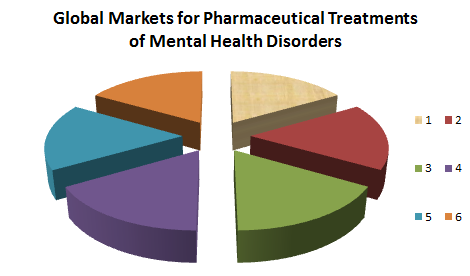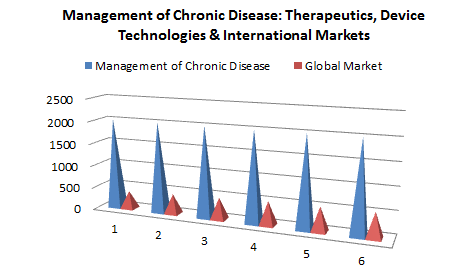Theme: Challenges in Psychiatry & Hopeful Future for Preventing Mental Disorders
MENTAL HEALTH CONGRESS-2023
Conference series delighted to announce the "17th International Conference on Mental Health & Psychiatry" webinar organised by the organising committee, is slated for September 26, 2023,, with the theme " Challenges in Psychiatry & Hopeful Future for Preventing Mental Disorders" All participants who are interested in contributing their research and data in the field of Psychiatry, Mental Health and Neurology are invited.
Mental Health Congress 2023 will be an excellent arena for debating novel discoveries and concepts. Attendees' curiosity in the field of Mental health & Psychiatry will be piqued by the one-day session. This event offers networking opportunities for psychiatrists, mental health specialists, neurologists, addiction specialists, scientists, professors, business assistants, students, and members of all psychiatry associations and universities. It also makes it easier to access possibilities for on-going education and top-notch content delivered by keynote speakers.
Speakers from all over the world can submit their abstracts, papers, case studies, and posters by choosing a topic from the "request for abstracts" or your area of research interest. For attendees, presenters, physicians, students, academicians, and groups, "Mental Health Congress 2023" offers hotel packages and affordable registration. Anyone can register for this conference using the choices available on the registration page.
Why Mental Health Congress 2023?
- Receive publication of your abstract in our proceeding journals.
- Obtain certification for your involvement.
- Lower prices affordable.
- Study the experts.
- Global dissemination of your research.
- Build new relationships.
Target Audience
- Psychiatrists
- Psychotherapists
- Clinical psychologists
- Psychologists
- Mental Health Specialists
- Neurologists
- Healthcare Scientists
- Psychiatric Counsellors
- Psychiatric Pharmacists
- Professors
- Researchers
- Students
- Pharmaceutical Companies
- Universities
- Psychiatry Societies & Associations
- Mental Health Administrators Mental Health Educators
- PhD scholars
Track 1: Behavioural Health Treatment and Services
For those with psychological wellness disorders, improvements in the variety of evidence-based medications, treatments, and psychosocial services, such as mental restoration, housing, business support, and companion bolster, have made wellness and recovery a possibility. An important step in the healing process is choosing the right medication and support combination for you. Choosing a course of treatment for emotional wellness disorders will vary from person to person. In fact, even people with comparable analyses will have different interactions, needs, desires, and therapeutic goals. There isn't a single, universal course of treatment.
- Behavioral therapy
- Interpersonal therapy
- Supportive psychotherapy
Track 2: Neurodevelopmental Disorders
Organic or Neuropsychiatry Psychiatry is a branch of medicine that deals with mental issues that might be linked to diseases of the sensory system. In any event, the subjects of neuropsychology and conduct nervous system science are closely related to neuropsychiatry, which is a growing specialist of psychiatry. Neurodevelopmental diseases obstruct the growth and development of the brain or, sometimes, the focused sensory system. A more limited use of the phrase refers to a mental health issue that affects memory, learning ability, discretion, and feeling, and that arises as a person develops and produces.
- Attention deficit hyperactivity disorder
- Nonverbal learning disorder
- Pervasive developmental disorders
Track 3: Behavioural Addiction & Neuropsychology
Neuropsychology is a branch of brain science that examines how the cerebrum and the rest of the sensory system relate to a person's judgement and behaviour. Experts in this field of brain science frequently focus on the implications of mental injuries or illnesses for conduct and psychological abilities. Behavioural addictions have similar effects to drug addictions on relationships, which are frequently ignored for the habit-forming behaviour, undermining trust and pressuring partners and other family to conceal and make up for problems caused by the fixation.
- Non-substance-related behaviour
- Cognitive behavioral therapy (CBT)
- Biomolecular mechanisms
Track 4: Psychotherapy & Psychology
Psychology is the study of the mind and behaviour. Psychology involves looking into conscious and unconscious events. Analysts also seek an understanding of the novel characteristics of minds, linking the field to neuroscience. Therapists strive to understand the behaviour of both individuals and groups, much like sociologists do. The use of psychological techniques, especially when they are centred on regular one-on-one interactions with children, to assist someone in changing their behaviour and successfully overcoming problems. The goals of psychotherapy include enhancing a person's prosperity and psychological wellness, identifying or reducing convictions, impulses, emotions, or feelings, and enhancing relationships and social skills.
- Personal interaction
- Pseudoscience
- Somatotherapy
Track 5: Pediatric & Adolescent Psychiatry
The young person and teen A therapist who specialises in the investigation and treatment of problems with reasoning, emotion, or possibly harmful conduct affecting children, teenagers, and their families deals with psychiatry. A child and adolescent therapist provides families the benefits of clinical education, the therapeutic norms of professional ethics, and the clinical duty to give thorough thought. It investigates the biopsychosocial variables that affect how things go, how mental issues develop, and how treatments respond to various intercessions. Psychotherapy and maybe medications are the main treatments used by child and adolescent specialists to address mental health disorders in the paediatric population.
- Autism spectrum disorder
- Conduct disorder
- Oppositional defiant disorder
Track 6: OCD & Schizophrenia
Schizophrenia is a serious mental illness characterised by odd social behaviour and difficulty distinguishing between what is real and what is not. The majority of those who have schizophrenia also have obsessive-compulsive symptoms. The diagnostic standards for obsessive-compulsive disorder are met by about 12% of people. OCD and schizophrenia are completely unrelated to one another in terms of their causes and symptoms, but they do have some characteristics in common that make some people more vulnerable to developing both disorders.
- Intrusive thoughts
- Streptococcal infections
- Generalized anxiety disorder
Track 7: Psychoanalytic Theories & Evolutionary Psychology
According to evolutionary brain research and developmental psychiatry, psychological issues are caused by the ineffective activity of mental modules that were designed to function under tribal physical or social settings but not necessarily under modern ones. Related species have been discovered to have social abnormalities that mirror human dysfunctional behaviour. Social conflicts and internal unrest are at the centre of psychoanalytic beliefs. These theories have been supported as explanations for mental health problems. This claim focuses on how unconscious forces affect people's behaviour.
- Psychological adaptations
- Criticism of evolutionary psychology
- Computational theory of mind
Track 8: Psychosomatic Medicine
A recently licenced subspecialty of psychiatry is psychosomatic medicine. It is sometimes referred to as liaison-consultation psychiatry. It offers information, training, and practise regarding the connection between mental and physical sickness. This field is involved in the diagnosis, treatment, and study of problems in this specific area. As a result, it links psychiatry to other fields of medicine so that psychiatrists can talk about treating patients with psychosomatic dysfunction.
- Somatoform disorders
- Irritable bowel syndrome
- Psychoneuroimmunology
Track 9: Mental Health & Psychiatry
A case history and mental health assessment typically come first in an individual psychiatric consultation. It is possible to direct actual evaluations and cognitive exams. Clinical concepts for treating mental illnesses are frequently determined and recorded in manuals of demonstration, such as the World Health Organization's (WHO) International Classification of Diseases (ICD) (WHO) According to the Public Health Agency of Canada, psychological well-being is the capacity of an individual to feel, think, and behave in ways that achieve a higher level of personal pleasure while taking into account individual, social, and social constraints. Any of these impairments is a risk factor for mental illnesses. Mental health issues are defined as the medical condition that affects and modifies thinking, emotional responses, and behaviour that is troublesome and furthermore impaired functioning.
- Maladaptations
- Neurophysiological techniques
- Assertive community treatment
Track 10: Adult and Geriatric Psychiatry
The majority of mental health issues are bodily biological processes that our bodies use to function. Our emotions, thoughts, and actions can all be affected by these circumstances. Everybody experiences emotions like grief, anxiety, and rage, but if those emotions persist for a while, they may start to interfere with our daily life. The interference with our daily routines is a clue that the symptoms might respond well to treatment. Frequently, people make the mistake of believing that mental health illnesses are an inherent part of life and are unaware that they have a condition that can be addressed. People worry that their illnesses are a result of their own actions or think that a weakness or flaw in their character is to blame for the symptoms.
- Psychiatry of old age
- Alzheimer's disease
- Neurological examinations
Track 11: Psychosomatic Disorders
Psychosomatic disorders are illnesses that affect both the body and the mind. It is believed that certain medical conditions are especially vulnerable to being exacerbated by emotional problems like stress and anxiety. How severe a physical illness is at any one time depends on your mental condition. For a psychosomatic condition, Cognitive Behaviour Therapy (CBT) is frequently the preferred course of treatment. As individuals obtain a deeper comprehension of their condition or situation, this therapy assists patients in learning new coping mechanisms and problem-solving techniques. A comprehensive, interdisciplinary framework for: assessing psychological issues affecting individual vulnerability as well as the course and outcome of illness; taking bio-psychosocial factors into account when providing patient care; and integrating specialised interventions can be considered psychosomatic medicine.
- Consultation-liaison psychiatry
- Behavioural factors
- Internal medicine
Track 12: Mental Disorders and Rehabilitation
It is a service to assist people in overcoming the challenges of more persistent mental health issues. People who still struggle to deal with daily life or get along with others will receive assistance and support from this. It will work to restore your confidence, help you deal with issues, and enable you to live as independently as possible. You might need to spend some time in a specialised rehabilitation service instead of being discharged home due to the challenges of managing a longer-term mental health illness.
- Psych social rehabilitation
- Vocational rehabilitation
- Rehabilitation counselors
Track 13: Mental Health Nursing
The chosen position of a nurse who has demonstrated significant authority in emotional wellness and cares for people of any age with dysfunctional behaviour or mental trouble, such as schizophrenia, bipolar disorder, psychosis, depression, dementia, and other conditions, is known as mental nursing or psychological well-being nursing. Attendants have specialised training in mental treatments, putting together a remedial organisation, controlling testing procedures, and organising mental solutions. In many countries, a mental health nurse must complete a four-year nursing programme in order to become a plainly enrolled nurse (RN) and have experience in emotional wellbeing.
- Psychological therapies
- Challenging behaviour
- Electroconvulsive therapy
Track 14: Psychopharmacology & Pharmacotherapy
The use of drugs to treat a disease or ailment is known as pharmacotherapy. Along with other therapies like Cognitive Behavioural Therapy (CBT) or 12-Step Facilitation, pharmacotherapy is frequently employed. Pharmacotherapy's objectives are to lower morbidity and avoid problems.
The field of psychopharmacology investigates how drugs are used to treat mental illnesses. Due to the complexity of this topic, ongoing research is necessary to stay up to date with new developments. According to psychopharmacology, medications can be used to treat mental health issues. Most mental health disorders can be helped by medications. While some individuals just receive drug treatment, others also receive therapy or other forms of care.
- Neuropsychopharmacology
- Psychoactive properties
- Chemical synthesis
Track 15: Psychoanalytic Theories
According to evolutionary brain research and developmental psychiatry, psychological issues are caused by the ineffective activity of mental modules that were designed to function under tribal physical or social settings but not necessarily under modern ones. Related species have been discovered to have social abnormalities that mirror human dysfunctional behaviour. Social conflicts and internal unrest are at the centre of psychoanalytic beliefs. These theories have been supported as explanations for mental health problems. This claim focuses on how unconscious forces affect people's behaviour.
- Personality development
- Psychoanalysis
- Neo-analytic theory
Track 16: Behavioural Health Strengthening
The current financial crisis is expected to have a negative impact on emotional health, which could increase the suicide and alcohol-related mortality rates in affected countries. The effects of the financial crisis on wellbeing may be less clear in nations with stronger social safety nets. According to research, various arrangement measures can balance out the negative impact of the financial emergency on one's emotional well-being.
- Interpersonal relationships
- Intergenerational dependence
- Psychological resilience
Track 17: Stress and Anxiety
The vast majority occasionally experience stress and anxiety. Stress is any demand made of your physical or mental faculties. People may say they feel focused when they are given a variety of competing requests. An event that makes you feel confused or anxious can cause the focused emotion to arise. Anxiety, stress, or unease is all examples of tension. It can be a reaction to stress or it can occur in people who are unable to identify significant stressors in their lives.
- Generalized anxiety disorder
- Positive psychology
- Obsessive compulsive disorder
Track 18: Depression & Bipolar Disorders
In everyday life, the word "Depression" can refer to a variety of topics. The marvel proves to be challenging to understand because the word is used to describe both a mental condition and a feeling. "Wretchedness" may refer to a momentary feeling of unhappiness that is a by-product of everyday disappointments, exhaustion, hopelessness, and sorrow. Since these sensations often allow people to create and change, no treatment is anticipated to address them. Sometimes the term "dejection" refers to a discouraged outlook that can last for a few days or even months but doesn't accompany other side effects that would make living more difficult.
Bipolar confusion, also known as hyper depressive illness, is a mental condition that results in erratic changes in mood, energy, activity levels, and the ability to execute daily tasks. There are four main types of bipolar disorder, and each one causes noticeable changes in mood, energy, and mobility. These temperaments range from incredibly exuberant, stimulated, and "up" moments (known as hyper scenes) to incredibly depressing, "down," or miserable moments. Hypomanic scenarios are less severe hyper episodes.
- Manic depression
- Childhood abuse
- Mood stabilizers
- Behavioral disorder
- Natural disasters
Track 19: Telepsychiatry
Telepsychiatry is a process that employs a telecommunications tool to provide mental health care to persons who are geographically far from a psychiatrist and who feel more comfortable at home. Along with convenience and improved accessibility, telepsychiatry may provide a variety of advantages. The advantages and realities of telepsychiatry are examined in this essay. Patients can receive a variety of healthcare services through telemedicine by using technology, which is often video-based. Through telepsychiatry, psychiatrists can communicate with patients directly over the phone or using video conferencing tools. Some people decide to pay for recordings of their medical records.
- Psychiatric assessment
- Home-based telepsychiatry
- Forensic telepsychiatry
Track 20: Epigenetics of Depression
Natural and inherited factors have a significant impact on major depressive illness. These elements include epigenetic modification of the genome, which involves a continuous change in quality expression without a modification of the actual DNA sequence. Although an individual is typically defenceless during childhood, hereditary and natural factors can have long-lasting effects on the genome. Methylation is one epigenetic factor that may serve as an indicator of how effective a given antidepressant treatment is. Antidepressants are currently used to reduce global DNA methylation levels and to calm people's moods.
- Major depressive disorder
- Gene expression
- Brain-derived neurotrophic factor
One in four persons on the planet will have mental health issues at some point in their lives. Around 450 million people are affected by mental illnesses worldwide, making them one of the most widespread ailments. Although there are treatments available, about two thirds of people with diagnosable mental illnesses never seek professional help. The World Health Organization claims that people with mental diseases are prevented from seeking care and treatment because to stigma, prejudice, and neglect (WHO). Where there is neglect, understanding is either minimal or nonexistent. When there is no comprehension, there is disregard. Therefore, it is essential to brush up on this material.
Global Markets for Pharmaceutical Treatments of Mental Health Disorders
With a compound annual growth rate (CAGR) of 4.8% from 2020 to 2025, the global market for pharmaceuticals prescribed to treat mental health issues should increase from $49.4 billion in 2020 to $62.6 billion by 2025.
This new paper offers a brief review of the pharmaceutical markets, present and potential therapies, drug failure/withdrawals, and entry obstacles for the market for pharmacological treatments for mental health disorders. The activity in mergers and acquisitions that will influence future treatment paradigms is reviewed, together with changes in healthcare regulation and recommendations for the development of novel drugs.
Management of Chronic Disease: Therapeutics, Device Technologies, and International Markets
At a compound annual growth rate (CAGR) of 7.1% from 2021 to 2026, the global market for chronic illness management medicines and device technologies is expected to increase from $391.8 billion in 2021 to $553 billion by 2026.
Numerous medications and medical device-based management strategies are used to treat a variety of chronic diseases. The main objective of this report, an analytical business tool, is to provide a thorough evaluation of the global market for managing chronic diseases using various therapeutics and cutting-edge device technologies.
Mental Health Societies & Associations in USA & UK
American Psychiatric Association; American Psychological Association; Anxiety Disorders Association of America; National Association of County Behavioral Health and Developmental Disability Directors (NACBHD); National Association of Mental Health Planning and Advisory Councils (NAMHPAC); National Association of State Mental Health Program Directors (NASMHPD); National Council for Community Behavioral Healthcare; Mental Health America; National Resource Center for Psychiatric Advance Directives (NRC-PAD); Substance Abuse and Mental Health Services Administration (SAMHSA); Bring Change to Mind; Mental Health America (MHA); National Alliance on Mental Illness; National Institute of Mental Health (NIMH); Anxiety & Depression Association of America (ADAA); Depression & Bipolar Support Alliance (DBSA); American Foundation for Suicide Prevention (AFSP); Association of British Neurologists; Association of Clinical Psychologists; Association of Mental Health Providers; British Association for Cognitive Neuroscience; British Association for Counselling and Psychotherapy; British Indian Psychiatric Association
Mental Health Societies & Associations Middle East
Middle East Psychological Association (MEPA); Emirates Psychological Association (EPA), The Emirates Society for Child and Adolescent Mental Health; Emirates Society of Mental Health (ESMH); The Psychiatric Association of Turkey (PAT); Turkey - World Association for Dynamic Psychiatry (WADP); Turkish Association for Psychopharmacology (TAP); The Association for child and adolescent psychiatry (ESCAP); Turkish Society of Biological Psychiatry; Saudi Psychiatric Association; Saudi Arabia - Middle East Psychological Association; Saudi Society of professional psychology; Oman - Middle East Psychological Association; Azerbaijan Psychiatric Association; Kuwait Psychiatric Association
Mental Health Societies & Associations in Asia Pacific
Mental Health Foundation Australia (MHFA); The Australian National Association of Practising Psychiatrist (NAPP); Australian and New Zealand Association of Psychiatry; Way Ahead – Mental Health Association; Australian Association for Infant Mental Health; The Indian Psychiatric Society (IPS); Indian Association of Private Psychiatry; Indian Association for Social Psychiatry; The Chinese Society of Psychiatry; Indonesian Psychiatric Association; Mental Health Association of Cambodia (MHAC); The Japanese Society of Psychiatry and Neurology; Japan Psychiatric Association for International Partnership; Japanese Association of Mental Health Services; The Korean Neuropsychiatric Association (KNPA); Association of Korean American Psychiatrists; Malaysian Psychiatric Association; Singapore Psychiatric Association
Mental Health Societies & Associations in Europe
Spanish Psychological Association; European Psychiatric Association – EPA; Spanish Society of Psychiatry and Mental Health; Swedish Psychiatric Association; Swiss Society of Psychiatry and Psychotherapy; Netherlands Psychiatric Association; Norwegian Psychiatric Association; Italian Psychiatric Association; Finnish Psychiatric Association; German Association for Psychiatry, French Federation of Psychiatry; French Congress of Psychiatry; Portuguese Society of Psychiatry and Mental Health; Norwegian Psychiatric Association; Netherlands Psychiatric Association; Latvian Psychiatric Association; Lithuanian Psychiatric Association; The Ukrainian Psychiatric Association (UPA); The German Association for Psychiatry, Psychotherapy and Psychosomatics (DGPPN); Independent Psychiatric Association of Russia (IPA)
Psychiatry & Mental Health Universities Worldwide
- University of Melbourne
- University of Glasgow
- Indiana University
- McGill University
- University of Washington
- University of Sydney
- Duke Global Health Institute
- University of Toronto
- University of Barcelona
- Columbia University
- University of Granada
- University of the Basque
- University of Edinburgh
- Autonomous University of Barcelona
- Autonomous University of Madrid
- University of Oviedo
Psychiatry & Mental Health Hospitals Worldwide
- Resnick Neuropsychiatric Hospital at the University of California-Los Angeles
- Johns Hopkins Hospital, Baltimore, Maryland
- Austen Riggs Center, Stockbridge, Massachusetts
- Menninger Clinic, Houston, Texas
- Massachusetts General Hospital, Boston
- University of California, San Francisco, Medical Center
- Mayo Clinic, Rochester, Minnesota
- New York–Presbyterian University Hospital of Columbia and Cornell, New York City
- UPMC Presbyterian Shadyside, Pittsburgh, Pennsylvania
- McLean Hospital, Belmont, Massachusetts
- Sheppard and Enoch Pratt Hospital, Baltimore
- Yale–New Haven Hospital, Connecticut
In the presence of academic and professional researchers and practitioners involved in the development of high quality education in all areas of psychiatry and mental health skills, the webcast of the 16th International Conference on Mental Health & Psychiatry was held September 08–09, 2022.
Conference Series played a key role in putting together a large panel of significant members of the psychiatry community from research labs, industry, academia, and financial investing organisations to discuss the future of ophthalmology and optometry specialisations. The purpose of this conference was to foster intellectual exchange and the development of new ideas in the area of mental health and psychiatry. Its true objective was to investigate the future directions of the actual psychiatry specialty.
On September 18–19, 2023, Barcelona, Spain will play home to the 17th International Conference on Mental Health & Psychiatry. The organising committee, as well as the numerous outside experts, business representatives, accomplished experts in their fields, and other notable people who worked with Conference sereies and supported the conference in every way, are all thanked on behalf of Conference sereies.
Conference Highlights
- Behavioural Health Treatment and Services
- Neurodevelopmental Disorders
- Behavioural Addiction & Neuropsychology
- Psychotherapy & Psychology
- Pediatric & Adolescent Psychiatry
- OCD & Schizophrenia
- Psychoanalytic Theories & Evolutionary Psychology
- Psychosomatic Medicine
- Mental Health & Psychiatry
- Adult and Geriatric Psychiatry
- Psychosomatic Disorders
- Mental Disorders and Rehabilitation
- Mental Health Nursing
- Psychopharmacology & Pharmacotherapy
- Psychoanalytic Theories
- Behavioural Health Strengthening
- Stress and Anxiety
- Depression & Bipolar Disorders
- Telepsychiatry
- Epigenetics of Depression
To share your views and research, please click here to register for the Conference.
To Collaborate Scientific Professionals around the World
| Conference Date | September 26-26, 2023 | ||
| Sponsors & Exhibitors |
|
||
| Speaker Opportunity Closed | |||
| Poster Opportunity Closed | Click Here to View | ||
Useful Links
Special Issues
All accepted abstracts will be published in respective Our International Journals.
- Journal of Neurology and Neuroscience
- Journal of Neuropsychiatry
- Journal of Translational Neurosciences
Abstracts will be provided with Digital Object Identifier by









